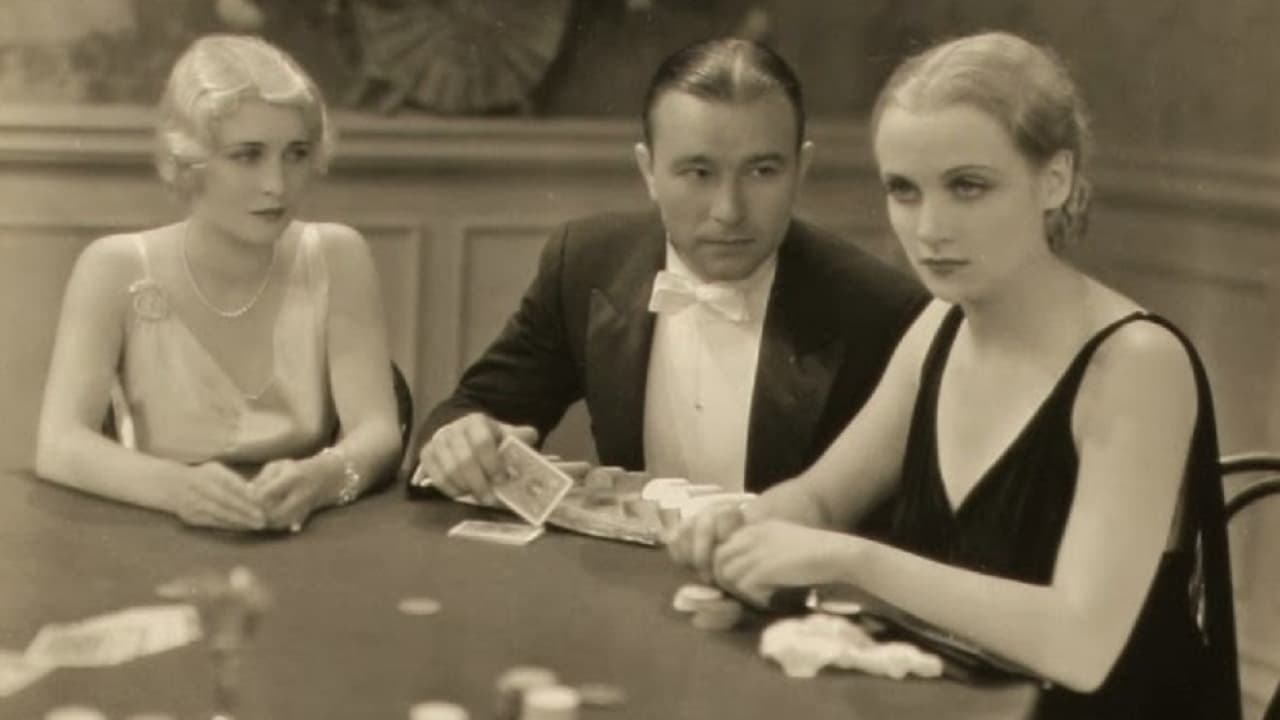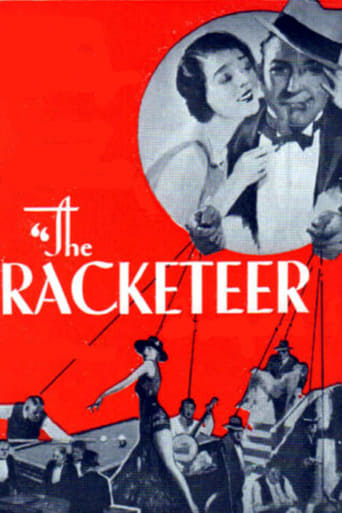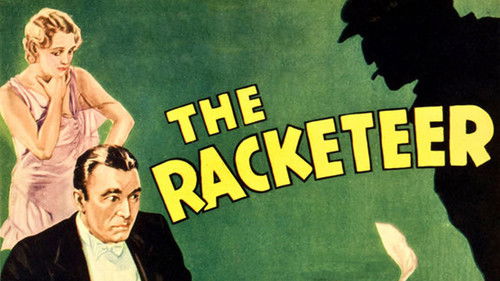


Who could establish if Armstrong's Mahlon K. is a good role? The actor looks so much his role, and so well, it's puzzling. Dependable supporting cast: Kit Guard and Al Hill; as often with the Pre-Code movies, the script is fundamentally right, whether it's masterful and crafty, or not, but the main thrust exists, and the scenes are leisured, unhurried, as the nice one with Al Hill being menaced, threatened by Paul Hurst. Because the players are unaccustomed with the new asset (i.e., the sound), the movie gains an uncanny dignity; you can feel at once the inexperience and the eagerness. I enjoyed the scene with the orchid. The movie is about the gangsters and about the glamorous world, but more about the gangsters, and we come to know him better than his girlfriend. The romance is one side of Mahlon's existence, as is his presence at the charity, etc.. So, the movie's title gives the right idea about its content. The characters' psyches aren't very profoundly probed, nor is the story echoing meaningful, but it's a way they play the gangsters, as when Squid denies, in front of the racketeer, having witnessed Gus' move, a gnarled style that has been neglected or abandoned later, a powerhouse and streetwise vehement style, sometimes coarse or pompous (the initial scenes with Mahlon), a bombastic roughness of the guttersnipes; the characters' names are nicely chosen: Mahlon, Rhoda, Mehaffy, Squid .The cast is better than the script; I liked the writing of the scenes, yet the plot is somewhat generic, and the romance could of been deepened more thoroughly (a divorcée rebel girl is ready to marry a racketeer when her passion, a drunkard musician, seems to wish to leave her).Hedda Hopper does her role of cheeky casualness, a nonchalant, worldly and domineering lady, a situation when someone's delusions of appeal serve the role.Kit Guard plays the henchman, Gus.
... View MoreAfter two of four straight interminably labored scenes that open this early sound primitive it becomes apparent the filmmakers are content just to capture the turgid dialog in flower potted mikes. The Racketeer is one numb clunker of poor pacing and bad acting.Sartorial resplendent racket chief Mahlon Keane ( Robert Armstrong ) is living the good life by way of prohibition and other illegal activities. Upbeat, good natured and generous he thinks nothing of putting a fifty dollar bill in a vagrant/street musician's pocket to prevent him from being nailed for vagrancy. In this particular case it will come back to haunt him both personally and professionally when he gets mixed up with the violinist's former wife Rhoda (Carole Lombard) who is struggling to get Tony Vaughn back on his feet and back onto the concert stage. With a big assist from Keane he gets his chance but shows his gratitude by trying to wrest his ex back from him.As the dapper racketeer Armstrong looks and carries himself convincingly but sometimes is left with nothing to say from one sluggish scene to the next. Lombard rotates between strident and flat while Roland Drew's Tony serves up thick slices of ham. Howard Higgins direction does seem to be relegated to making sure the microphone is on but given the pedestrian audio should nevertheless be commended for trying to capture it on actual city streets, albeit poorly and unimaginatively.
... View MoreIn 1929, in New York, the powerful mobster Mahlon Keane (Robert Armstrong) meets the bankrupted former socialite Rhoda Philbrooke (Carol Lombard) in a poker game of a benefit fund-raiser party and helps her to cheat the game. Rhoda had divorced from her wealthy husband to stay with her alcoholic lover, the violinist Tony Vaughan (Roland Drew), and is financially broken. Mahlon feels attracted by Rhoda and helps her to recover the health of Tony and promotes his career. Later Mahlon proposes Rhoda, who accepts to marry him, but a couple of hours before their marriage in a yacht, Tony tells Rhoda that he loves her. While Rhoda thinks how to tell Mahlon about her love for Tony, a tragedy happens in Tony's dressing room."The Racketeer" is one of the first American features in the sound age, and has a dated melodramatic story of a triangle of love composed by a gangster, a musician and an ex-socialite. This film is only reasonable, having silly dialogs, average theatrical performances, terrible quality of sound with a terrible voice intonation of the cast and the images have not been restored, therefore is full of problems. The Brazilian DVD released by London Distributor, has an additional problem, with the bad quality of subtitle in Portuguese, full of mistakes, without synchronization and using capital letters in the first letter of every sentence. "The Racketeer" is only recommended as a curiosity of the transition between silent and sound features. My vote is five.Title (Brazil): "O Gangster" ("The Gangster")
... View More"The Racketeer" stars Carol (deprived of the "e" that usually appeared at the end of her first name) Lombard as a woman thrown out of society because she left her husband for a concert violinist (Roland Drew) who has since become a down-and-out alcoholic, and torn between her love for him and the interest of New York crime kingpin Robert Armstrong (top-billed). It's virtually a compendium of what was wrong with the earliest talkies: stiff direction, immobile cameras, stagy acting and ridiculously slow-paced delivery of lines. At the time the sound crews were telling the directors to have their actors speak every line s-l-o-w-l-y and not to start speaking their own line until after the previous actor had finished theirs. Done about five years later, this could have been an interesting movie, but director Howard Higgin faithfully follows his sound recorder's dictates and systematically undercuts the talents we know Lombard and Armstrong had from watching their later movies. "The Racketeer" was made in 1929, a year that despite the transition problems from silent to sound nonetheless gave us some legitimate masterpieces Vidor's "Hallelujah!," Mamoulian's "Applause," Wyler's "Hell's Heroes," Capra's "Ladies of Leisure" all from directors with strong enough wills to tell the soundboard dictators to get stuffed and let their actors talk and act naturalistically. Too bad Howard Higgin wasn't that strong; as it is, watching a naturally rapid-paced actor like Armstrong slog through the part in the ridiculous way he's been told to speak, one can't help but wonder where that 50-foot gorilla is when Armstrong needs him.
... View More